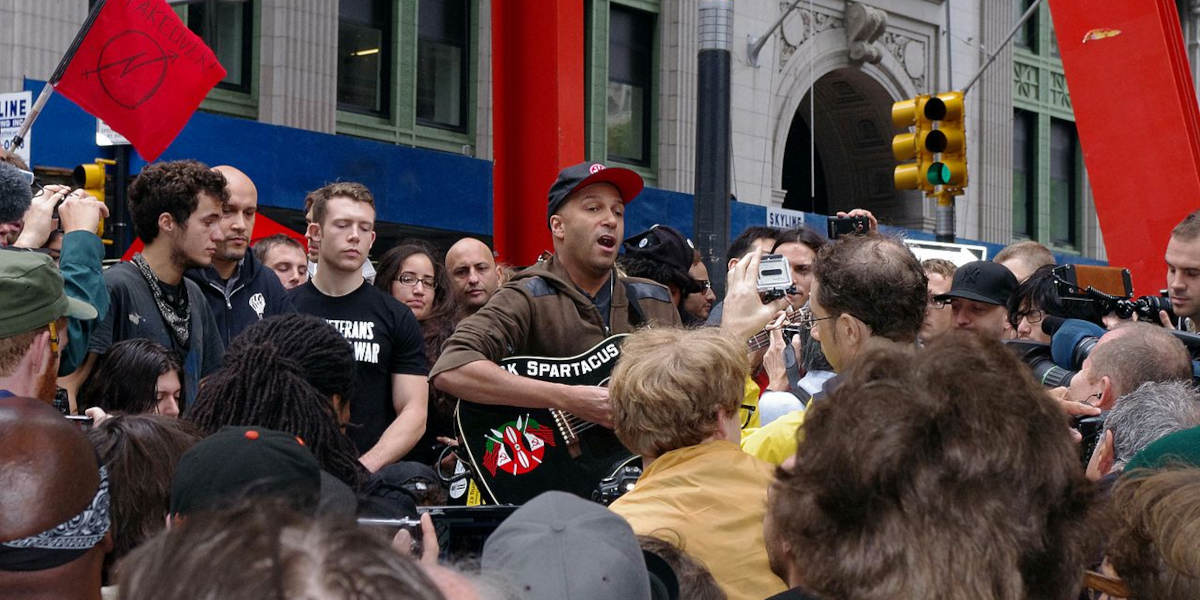This new movement of ours, the Occupy movement, first exploded in New York, on Wall Street – and it was inspired in turn by the uprisings in Cairo and Tunis, via Madrid. Today there was hardly a city in the world not touched by the occupations. This global day of action saw protests in up to 1,000 cities in more than 80 countries across five continents.
‘We are all indignados now,’ said London occupier Claire – one of 5,000 who turned up to target the London Stock Exchange. ‘We are all standing together with the people occupying Wall Street. We are making Tahrir Squares everywhere.’
From Boston to Belfast, from South Africa to South Korea, we have taken the streets, taken the squares, reclaimed the space that has been stolen by us inch by inch. We have a new model of protest: not a march from A to B, but occupations from A to Z. It will take time to see how many of today’s protests settle into long-term occupations, but that it will be hundreds upon hundreds seems all but certain.
As I write, the police may be coming down hard on us in London – but as we have seen in Wall Street, repression only makes this movement come back stronger.
Because we have a brilliant slogan, a slogan of incredible power, a revolution in one sentence: ‘We are the 99 per cent’. Out of the window go petty distinctions like ‘lower middle class’ and ‘gold-plated public sector’. Our target is crystal clear: we stand united against the 1 per cent who own almost all the wealth – the 1 per cent who have got rich off our backs.
As one placard at Occupy London said today, ‘This isn’t a recession, it’s a robbery.’ In the UK, the 1,000 people in the Rich List have a massive £396 billion – up £60 billion since last year. And the rich dodge an estimated £123 billion a year in tax on top of that. A fraction of these eye-popping amounts would eliminate the so-called ‘need’ for cuts and austerity.
It’s the same the world over. The terrible inequality created as neoliberal capitalism spread its tentacles across the globe has been a key factor driving the Arab Spring. Since the Egyptian revolution, the protesters there have focused on trying to get rid of their own ‘1 per cent’: they call them the ‘little Mubaraks’, the petty-dictator bosses who still own the firms and the factories.
The Occupy movement’s global statement echoes this, calling the IMF, G8 and co ‘our global Mubarak, our global Assad, our global Gaddafi’. It continues: ‘The citizens of the world must get control over the decisions that influence them in all levels – from global to local.’
That is what this movement is about. ‘From the public square, to the factory floor, to those huge, undemocratic international institutions – it is about handing over not just wealth but real control to you and me and all of us, the 99 per cent,’ said Zoe in London.
‘We are the people yet we have no say. This is a global uprising to say: enough! We don’t just demand real democracy – we are creating it, right here, right now. This time we really can win.’










